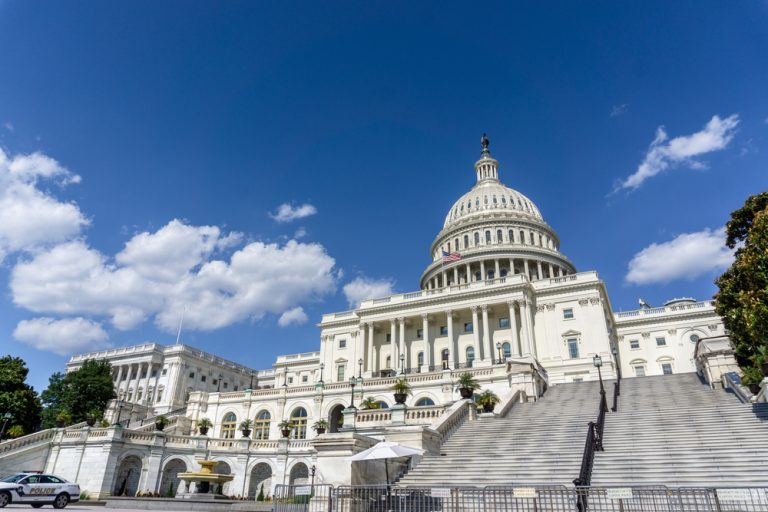
“Multilateral” Chinese spy air balloon: an embarrassment for U.S. authorities, which give them freedom to act in their confrontation with China
It is no exaggeration to say that a Chinese balloon in the U.S. sky has exploded the American political agenda. In early February, amid Secretary of State Blinken’s upcoming visit to China, the most bizarre scandal of the year erupted in America, as the entire country watched a “Chinese spy balloon” fly over the west. Early on, the White House suggested sending F-22 fighter jets to shoot it down, but the Pentagon feared it would lead to a big crash and a possible wildfire. That is why the balloon with the “special” equipment continued to fly for a long time over Montana, where the U.S. nuclear missile launch pits are located.
This was not the first time Washington accused China of launching “spy balloons,” but this time it was complicated by the fact that relations between the two countries are at their lowest point in 50 years. Therefore, it was clear in advance that Blinken’s visit would not lead to any progress. Against this backdrop, the trade wars were intensifying: the U.S. was imposing sanctions against the Chinese chip industry, and Beijing was already hitting the U.S. vulnerability, planning to limit exports of components for solar panels and freeze the “green transition” of the U.S. economy promised by Biden. The situation was particularly exacerbated by House Speaker Kevin McCarthy’s imminent trip to Taiwan, which could again exacerbate the Taiwan crisis and further motivate Beijing to resolve the Taiwan issue militarily in the future. Therefore, the odd story of the “spy balloon” is only an embodiment of the overall crisis between the U.S. and China. Immediately after the incident, Republicans began to accuse Biden of “showing weakness” with his reluctance to shoot down the balloon. The political class in Washington is lobbying in unison for further U.S. pressure on China, which could eventually lead to a hot conflict in the Indo-Pacific region.
After this, it is not surprising that the balloon story caused an awful stir in the government offices of Washington. The White House and the U.S. intelligence community tried to play down the significance of the Chinese balloon flight over U.S. territory and pointed out that any information obtained by the balloon could just as easily be obtained by Chinese satellites. Of course, this was an attempt to cover up their miscalculations. Republicans strongly disagreed, calling what was happening almost an “attack” on U.S. sovereignty. Trump demanded that the balloon be shot down as soon as possible, Congress suggested that it be grounded and that the equipment on the balloon be seized to determine why it was flying over the United States.

U.S. “security” advocates have suggested investigating whether the balloon could have been used to spy on nuclear missile silos in Montana, over which it was located. The balloon incident eventually derailed Secretary of State Blinken’s trip to Beijing, which was supposed to have eased the tensions between the two countries. Meanwhile, CIA Director Burns said that China expects a military operation to retake Taiwan by 2027. The governor of Montana’s neighboring South Dakota, Kristi Noem, used the opportunity to try to sneak legislation in the local Congress to prohibit the sale of land to the Chinese. Similar measures are also being passed in Florida and several other Republican states, adding to the atmosphere of general anti-Chinese hysteria. The “spy-balloon” story and the White House’s delayed reaction play into the Republicans’ hands. They are already actively using the “China card” against Biden, accusing him of having ties to the Celestial Empire. As the elections approach, the attempts to accuse each other of working for other countries (Democrats for China and Republicans for Russia) will only increase, becoming a regular feature of the political wars in Washington. The Republicans are therefore particularly zealous in using this case in their propaganda.
In addition, the Republicans in Congress were stirring up hysteria, and accused China that it might in the future use such balloons for a biological attack on the United States. In their opinion, this could be accomplished by spraying dangerous virus spores from the balloon. U.S. military experts feared the balloon could launch nuclear strikes on U.S. military facilities. Against the background of the “enemies around” campaign, the Congress will begin to pass a bill which will allow to impose a ban on the purchase of real estate for representatives of any country. This is aimed primarily at the Chinese, who are accused in the U.S. of buying a lot of arable land in America. Donald Trump and Nikki Haley, two contestants in the Republican primaries, accuse Biden of allowing China to encroach on U.S. sovereignty. Trump is sure that America is now flooded with “Chinese spies”, and there is nothing Biden can do about it. Biden is now paying much more attention to the labor market and has tried to divert Americans’ attention away from anything to do with the “spy ball”. But the longer this went on, the more criticism was hurled at the White House, and sooner or later the latter had to do something about the balloon. The situation was also complicated by the fact that Biden was planning to formally announce a new presidential campaign in the coming weeks. That had already been blurred because of the scandal with the secret documents, and the current story with the “spy balloon” was further complicating things and hurting the reputation of Biden, who was already being portrayed as a weak and incompetent president who do not deserve a second term in 2024.
On February 4, the two-day epic with the “spy balloon” was finally over. The U.S. Air Force waited until it had crossed South Carolina and was over the Atlantic, and then the balloon was shot down after all. Technically, this “spy balloon” could hardly collect that much information, especially beyond what could be photographed from satellites. However, the drama surrounding the balloon brought very real political consequences: in addition to canceling Blinken’s visit to Beijing and accusing Biden of weakness, Republicans linked the incident to Hunter Biden’s ties to China. In their view, the Biden family was long reluctant to harm the “spy balloon” because of their business commitments to China. Many perceived the balloon as China’s response to possible U.S. involvement in a future Taiwan crisis with arms supplies to Taipei and support for its independence. Biden would soon officially run for a second term trying to present himself as a new Roosevelt or Truman waging a major war in Europe. But that image has been badly blurred, first by the secret documents scandal and now by his inability to deal with one unfortunate balloon for two days. The main victim of this scandal was not even China-U.S. relations, which are already at a very low point, but the political future of Biden. And yet, the downed Chinese balloon will affect world politics for a long time to come. The Chinese balloon epic over the United States has come to an end after the F-22 fighter jet ended its long journey and existence with a missile. However mentally, it became another comical but highly revealing episode of a new Cold War between Washington and Beijing that will last for decades.

